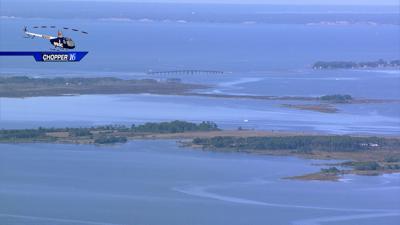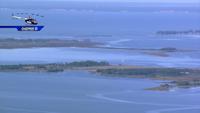DELMARVA - The Chesapeake Bay Program says this year’s dead zone in the Chesapeake Bay was the smallest on record, mainly due to pollution reduction and below-average rainfall.
Data from monitoring of the Bay suggests the dead zone is the smallest since monitoring began in 1985, the Chesapeake Bay Program says.
“These results illustrate that nutrient input reductions can produce a significant improvement for fish, crab and oyster habitats, and that we need to continue and advance our management efforts throughout the watershed," said Mark Trice, program chief of water quality informatics with MD DNR’s Resource Assessment Service.
Researchers earlier this year predicted the lower dead zones, which can hurt local watermen in killing off plant and animal life. Dead zones are often caused by run-off from agricultural fields and urban areas, which produce patches of water with little to no oxygen, otherwise known as hypoxic zones.
According to reports from Maryland and Virginia, the level of hypoxic zones in the bay was better than average in May through August this year, despite the season’s above average temperatures and wind, which can contribute to oxygen loss in the water. Hypoxia levels were higher than average in September, but then plummeted no hypoxic conditions at all in October, according to the Chesapeake Bay Program.
The Program says efforts in pollution reduction in Delaware, Maryland, New York, Pennsylvania, Virginia, West Virginia, and Washington D.C. all help reduce the amount of nutrients that enter the watershed that exacerbate dead zones.
"This year's Chesapeake Bay dissolved oxygen conditions are the best on record, and it is encouraging news,” said Sec. Josh Kurtz of the MD DNR, who is also Chair of the Chesapeake Bay Program’s Principal Staff Committee. “These results show that the ongoing work to reduce pollution across the Bay’s watershed is making the Chesapeake Bay a better place for fish, crabs, oysters, and other marine life. As we focus our cleanup efforts during the next decade, we can accelerate and build on this progress.”


